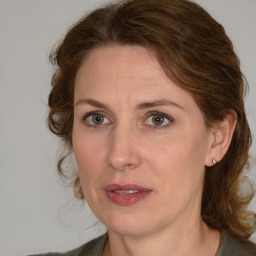This sanple will guide you through:
- Introduction for Organization Critique & Comparison of Literature
- Managing change through technology and education
- Learning for Organizational development by Ben Ramalingam
- Knowledge Management and Organizational Learning
Introduction for Organization Critique & Comparison of Literature
Organizations that are running to earn profits and want to grow, have to be up to date with the latest changes. In order to remain ahead of the other competitors, it is necessary that organizations learn new technologies and deliver it to their stakeholders. It is very important for the survival of the organizations, else they may die. The main objective of the organizational learning is to support the business in any unique field, processes and unique organizational results. Here in this paper, three important articles have been studied and a critical review of all the articles has been presented. One of these three is from a book and two are taken from journals.
Critical review: Managing change through technology and education
This book has been written by Arthur M Langer. The main focus of Langer is to provide an idea about leveraging learning in and by organizations, and with a challenge of continuous technological changes. He found that there is no clear link between organizational learning and individual learning, because According to Langer, leaders are the bridge between the individual learning and organizational learning. But there is not much research done on what these leaders do to increase organizational learning (Watkins & Barnas, 1999). On the other hand, Langer, with the help of this book, tries to make some facts clear about how the managers and leaders help in defining and supporting organizational learning based on technology.
The result of the distinctions between these two roles of the technology emerges as a new model, which he named as Responsive Organizational Dynamism (ROD). The result of ROD is strategic integration, which requires integration between line managers and staff from technology background. Where the organization learning is based on technology in the role of a driver, it has a different audience, content and level, which is helpful in supporting the operations, based on operations of routine technology. One more important point that has been covered by Langer is the points that were used by Nonaka and Takeuchi in the year 1995 about the distinction between organizational and individual learning. This topic is vital for the leaders, human resource developers and managers
Their focus remains on knowledge management because through this they can use important information so that they can get good business results, on the other hand, managers at the operational level, have a habit of supporting the routine work. These managers help both of them by interpreting and making some technological sense to both of them, as a support as well as a driver.
Here in this book, Langer adopted a technique propounded by Kaplan and Norton (2001), which is known as Balanced Score Card. He also suggested the ways through which its (Balanced Score Card) value can be measured. Langer's focus on the measurement helped him in making the business case for the better understanding of using technology and leveraging it, so that both, individual performances as well as the organizational performances can be increased and it can produce better results. An explicit business case was made to tell about the specific use of technology, while he made an implicit case for leveraging the learning through strategic technique as a means. He also presented a single model, which has integrated features of all the models, to give a comprehensive solution to the readers. All these models used separately traditionally. Langer has given a new way in the form of new theories of various disciplines and fields so that organizations can learn to solve the challenges in front of them in a better manner and with the help of leveraging the technologies.
Critical review: Learning for Organizational development by Ben Ramalingam
Ben Ramlingam had made several researches on various organizations to find out the learning of the organizations. And, the result of his findings is that most of the organizations is poor learners. Ben offered several recommendations that are useful for organizations to improve their learning. He tells that organizations still need to follow many challenges at the field level. He suggested various aids such as Single, double and triple loop learning. In a single loop learning, process is to detect and correct the variances and the deviations from the set standards. The second loop takes care that the same practices are not applied for different contexts. And the third loop involves the radical transformation in the entire structure of the organization at the internal level, its culture and all its practices. The author had found from his research that most of the organizations do not move ahead of the single loop learning.
The author had made an intense research of the organizations, where he found that many organizations found single loop learning a problematic strategy. Most of the organizations were in favor of informal learning. But, it was also found that there was no clear this activity will support the organizational learning or not. His research was mainly based on the observations of the activities done by the organizations.
From his article, it is seen that his theory and observation was not supported by any other author. He mentioned at one point that in many organizations, female learning is not a very essential part of organizational learning. But, it was not proven by any other scholar. There is no support study of this observation, which can tell that what number of organizations were studies or observed by Ben and how many organizations he found not following the organizational learning in a proper manner or at what level all these organizations are at learning criteria. The author also gave examples and stories of the US Army using the simple tool, but again he did not support these stories with any data. Ben said that he observed some organizations following the learning based on the human dimensions and learning.
Later on Ben mentioned about the vision of organizational learning, which was based on the previous study of Argyris and Schon (1978), which is the organization which is learning is an adaptive organization and that pays attentions on the past errors and is capable of transforming its mistakes or errors accordingly. For this, he further did a study and suggested five disciplines that are interrelated to each other. These disciplines are Personal Mastery; Mental models; Shared vision; team based mastery and the last one is Systematic thinking. But in real these models are not very much practical.
Under personal mastery, the staff from the operational background thinks that they have been undervalued by organizations and there are not very good incentives for the staff members if they learn for the betterment f the organization. Under mental model he suggests used of tactics, while this knowledge is more important at the level of the field, when the staff of field level are not much interested in the informal learning. The third discipline is shared vision which needs necessity for assessment and understanding of the performances of the staff. The fourth one is the mastery based on teams. Teams change due to high staff turnover rate. The fifth one is systematic thinking, having a focus on the relation between various sections of the organizations. Butte learning cycle is not supported at the field level in most of the organizations and at various stages of the learning procedure.
These five disciplines are useful in the operational context but the issues mentioned above are also tested and reviewed by ALNAP in 2004 in his findings of field level learning among the aid agencies of humanitarians. All these disciples also have one more issue that these can be used all together only in any firm because they have some kind of synergy in them. The major problem is that the most preferred discipline of learning which is based on tactics and social knowledge, does not have any interconnection with the approaches of formal learning, which has its focus on guidelines, strategies based on information and classroom training.
Critical Evaluation of Knowledge Management and Organizational Learning:
This review is basically aimed at the corporate level learning. This research work is basically taken place at Overseas Development Institute and is based on research and Policy in Development program. The main aim o this research is to support policies based on evidences. It has mainly focused in four aspects. These aspects are to increase knowledge regarding research policies among the researchers, policy makers and developmental practitioners; to improve awareness of the importance of access of the research among the policy makers; to improve the learning and knowledge management system in northern and southern developmental agencies.
Developmental agencies have a major benefit from the knowledge management as they need to increase their organizational efficiency very much. These developmental agencies also need that these KM and learning should contribute towards partnership, policy making and responsiveness apart from contributing to the internal development of the organizations. The paper shows that at the recent times, developmental agencies have started paying attention to the assessment of their own learning as well as the impact and influences of their work and their policies. It is also found that the corporate sector has avoided this area in their organizational learning and developmental programs.
Combined Evaluation
The main emphasis of the book, Managing change through technology and education is on leveraging the technological changes for the development of the organizations. It also tells about the difference between the individual learning and organizational learning. The author tries to explain about the importance of technology in the organizational learning. On the other hand, the article Knowledge Management and Organizational Learning. An International Development Perspective does not put any emphasis on the technological learning. It gives emphasis on he NGOs to increase their knowledge by gaining more information so that new markets can be emerged for the poor and needy. Article for Organizational development by Ben Ramalingam puts more emphasis on the organizational and corporate level learning. It also do not give any specific example of technology to be used to increase the knowledge of the organization, but gives some tactics and dimensions that can help the organization. He also suggests some aids that can help the organization learn and grow for various levels of the organization.
References
- Alnap. 2004. ALNAP Review of Humanitarian Action in 2003: Field Level Learning. Active Learning Network for Accountability and Performance (ALNAP).
- Ellinger A. D., Watkins K. E., Barnas C. M. (1999): Responding to New Roles - a qualitative study of Managers as Instructors. London: Sage Publications.
- Kaplan, R. S. and D. P. Norton. 2001. The Strategy-Focused Organization: How Balanced Scorecard Companies Thrive in the New Business Environment. Boston. MA: Harvard Business School Press.
- Langer, A.M. 2005. IT And Organizational Learning: Managing Change Through Technology and Education. NY: Routledge.
- Nonaka, I. and Takeuchi, H. 1995. The Knowledge-Creating Company : How Japanese Companies Create the Dynamics of Innovation..















